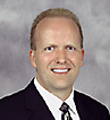Blog
How Should I Manage My Retirement Plan?
How Should I Manage My Retirement Plan?
Employer-sponsored retirement plans are more valuable than ever. The money in them grows tax deferred until it is withdrawn at retirement. Distributions from a tax-deferred retirement plan, such as a 401(k) plan, are taxed as ordinary income and may be subject to an additional 10-percent federal tax penalty if withdrawn prior to age 59 ½. And contributions to a 401(k) plan actually reduce your taxable income.
Many workers in today’s job environment may have 2 or even 3 or more different jobs in their lifetime. Therefore the portability of these Defined Contribution Plans has made it easy to “take them with you” when you leave your employer and simply “Roll them over”.
While the shift from Defined Benefit Plans to more traditional Defined Contribution Plans has taken place, it would be wise to look into your employers plan to see if they offer a matching percentage on funds you contribute.
By contrast, contributions to a Roth IRA are made on an after-tax basis and are not taxed as ordinary income and may be subject to an additional 10-percent federal tax penalty if withdrawn prior to age 59 ½. And contributions to a 401(k) plan actually reduce your taxable income.
But figuring out how to manage the assets in your retirement plan can be confusing, particularly in times of financial uncertainty.
Conventional wisdom says if you have several years until retirement, you should put the majority of your holdings in stocks. Stocks have historically outperformed other investments over the long term. That has made stocks attractive for staying ahead of inflation. Of course, past performance does not guarantee future results.
The stock market has been extremely volatile lately. Is it a safe place for your retirement money? Or should you shift more into a money market fund offering a stable but lower return?
And will the instability in the markets affect the investments that the sponsoring insurance company uses to fund its guaranteed interest contract?
If you’re participating in an employer-sponsored retirement plan, you probably have the option of shifting the money in your plan from one fund to another. You can reallocate your retirement savings to reflect the changes you see in the marketplace. Here are a few guidelines to help you make this important decision.
Consider Keeping a Portion in Stocks
In spite of its volatility, the stock market may still be an appropriate place for your investment dollars — particularly over the long term. And retirement planning is a long-term proposition.
Since most retirement plans are funded by automatic payroll deductions, they achieve a concept known as dollar cost averaging. Dollar cost averaging can take some of the sting out of a descending market.
Dollar cost averaging does not ensure a profit or prevent a loss. Such plans involve continuous investments in securities regardless of the fluctuating prices of such securities. You should consider your financial ability to continue making purchases through periods of low price levels. Dollar cost averaging can be an effective way for investors to accumulate shares to help meet long-term goals.
Diversify
Diversification is a basic principle of investing. Spreading your holdings among several different investments (stocks, bonds, etc.) may lessen your potential loss in any one investment.
Do the same for the assets in your retirement plan.
Keep in mind, however, that diversification does not guarantee against loss; it is a method used to manage risk.
Periodically Review Your Plan’s Performance
You are likely to have the chance to shift assets from one fund to another. Use these opportunities to review your plan’s performance. The markets change. You may want to adjust your investments based on your particular situation.
Author Bio
Thomas J. Hartfield, President and founder of Hartfield Financial & Insurance Services, Inc., launched his independent Financial Planning and Insurance Services practice in 1994 to help individual investors and small business owners with IRA, Rollovers, 401(k) Plans and Life, Health and Disability Insurance to them with the best service and personal attention that is missing by the larger firms. Visit us at: www.HartfieldFinancial.com for more information or to simply learn more about Tax-Deferred Retirement accounts or other financial instruments. We can be reached at: 805/522-5815. "HELPING FAMILIES PRESERVE THEIR WEALTH"
Vote
You May Also Like...
- A Path to Wealth
- Single people have different retirement planning priorities
- Improve Cash Flow with Receivable Factoring
- Financial Planning for Twentysomethings
- Tax Deductions When Getting a Mortgage
Join the Discussion
For future financial security , retirement plan is an essential part. There are different types of retirement plans and it is important to understand that how your retirement plan works and what type of benefits you will have. You should periodically review you plan. If you are not getting good benefit then you can shift your assets so use these type of opportunities to increase your benefit.








